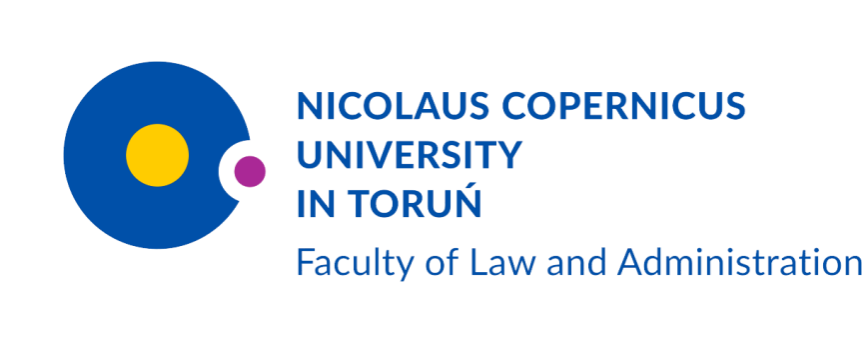From the beginning of the 1990s, along with the growing number of students, various forms of self-government as well as scientific, cultural and sporting endeavours were also developed. During this period, the following organisations were established: Students’ Scientific Organisation of Criminalistics, Students’ Scientific Organisation of New Technologies Law, the Student Scientific Organisation of Human Rights “Homo Homini”, and the Student Scientific Organisation of Comparative Law. Currently, apart from research clubs, whose subject of activity is the issues of dogmatics of law, groups specialising in shaping soft skills have been created. Students and doctoral students within the Faculty are able to develop their scientific and non-scientific interests via 32 academic organisations:
- Student Scientific Organisation of Forensics
- Student Research Organisation of New Technologies’ Law
- Students’ Scientific Organisation of Comparative Law “Ius et Lex”
- Student Organisation of Labour Law
- Scientific Organisation of Administrative Law
- Scientific Organisation of the History of the State and Law
- Intellectual Property Law Organisation “Niematerialni”
- Scientific of Criminal Law
- Student Scientific Organisation of Medical Law “Lex Medica”
- Student Scientific Organisation of Constitutional Law
- Student Scientific Organisation of Electoral Law “Elektor”
- Student Scientific Organisation of Banking Law and Capital Market
- Lex Sportiva Sports Law Scientific Organisation
- Scientific Organisation of Civil Procedure
- Scientific Organisation of Commercial Law
- Student Scientific Organisation of Political and Legal Doctrines
- Student Scientific Organisation of Civil and Family Law
- Scientific Organisation of Public Economic Law
- Scientific Organisation of Economic Insurance Law
- “Sapere Aude” Organisation of Jurists in Roman and Canon Law
- Student Scientific Organisation “Student Law Academy”
- Scientific Organisation of Judicial Rhetoric
- Spanish and Latin American Law Student Research Organisation “La elección”
- Student Scientific Association Student Debate Club
- Scientific Organisation of International Public Law NCU
- Student Scientific Organisation of Competition and Consumer Protection
- Scientific Organisation of Criminal Procedure
- Tax Law Student Research Group
- Scientific Organisation of Classical Issues of Criminal Law Dogmatics “Notitia et Utilitas”
- Scientific Organisation of Legal Marketing
- Committee for the Protection of Children’s Rights
Detailed information about individual research organisations, as well as their authorities and supervisors, is available on the NCU home page.
The clubs organise conferences (both national and international), discussion panels, and lectures, as well as supporting the scientific activity of students. Students associated with these organisations also conduct publishing activities (with the support of academics). There are three student periodicals at the Faculty: “Lex Sportiva”, “Votum Separatum”, and “Employee and Employer”.
The Faculty also has a University Legal Clinic and Clinic 42. The purpose of the Legal Clinic is to provide legal assistance to people whose financial situation does not cover the costs of obtaining paid legal aid. In turn, the statutory tasks of Clinic 42 include providing legal assistance, particularly in matters relating to conditional early release, interruption in imprisonment, passes, improper medical care in penitentiary units, improper treatment by Prison Service officers, or a request to pay a fine via instalments.
The Faculty Council of the Student Government is also highly active at the Faculty. It has been established to represent the interests of all students of our Faculty, in particular to provide them with representation before the authorities of the Faculty, the authorities of the Nicolaus Copernicus University, and also outside the University. Other equally important tasks are the individual defence of students’ rights and supporting students in providing them with the best possible living and learning conditions. Through participation in committees, members of WRSS make decisions about social and scientific matters concerning students on a cooperative basis. Local government activity is based on cooperation with research clubs and other student organisations operating at the faculty and at other universities, as well as with the Students’ Parliament of the Republic of Poland. The self-government operates within the limits specified in the Act on Higher Education, the executive regulations to this act, the Statute of the Nicolaus Copernicus University, and the Regulations of the Student Self-Government of the Nicolaus Copernicus University.
An important role in activating the student community is also played by the ELSA Toruń Local Group, which was established at the Nicolaus Copernicus University Faculty of Law and Administration in 1997. It is one of 15 Local Groups operating in Poland. Over its lifetime, ELSA Toruń has managed to implement a wide range of interesting projects including national conferences, Legal Education Days, legal film academies, student exchanges, student internships, trips to prisons and forensic medicine institutions, Adaptation Days, a Polish Adaptation Camp for Law Students “Adapciak” (organised twice in 2007 and 2011), and Study Visits. The ELSA Toruń Local Group has also twice organised important events for the Association itself, specifically the General Meeting of Delegates of ELSA Poland in 2002 and 2011.

 ul. Władysława Bojarskiego 3, 87-100 Toruń
ul. Władysława Bojarskiego 3, 87-100 Toruń